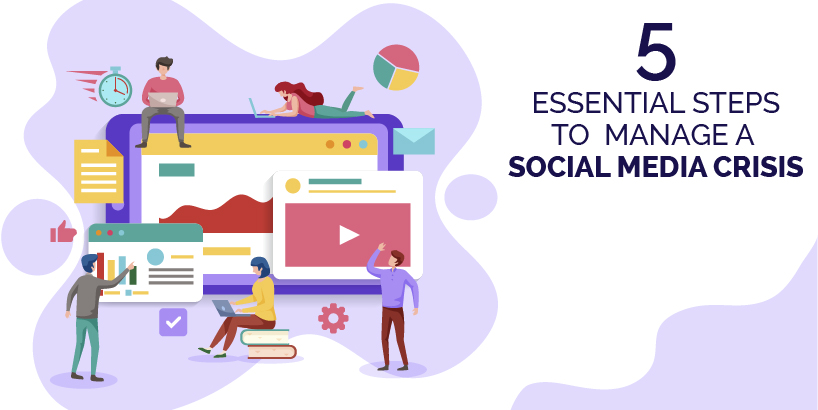A communication crisis can happen anytime. In today’s interconnected digital world, social media crisis hits brands without a caveat. It doesn’t matter the industry your brand belongs to or the popularity your brand possesses; sometimes, it just happens. Hence it is important to be always prepared for a crisis.
The first thing to do is, understand what is a crisis and what is not, before creating an effective social media crisis management plan. Because prevention is always better than cure! In the early days of social media, there used to be only very little issues to solve. But today, even petty issues take up a big room in social media leading to heated debates and discussions.
What is a crisis and what is not?
Somebody giving one or two rude remarks about your company through social media is not included in the list of crisis. But when the rude remarks start coming from a huge number of people, then it should be given a thought. The famous brand Forever 21 faced a huge backlash for the way they treat animals for wool. Many people in the social media stood up against the brand for their unethical practices. Well, something like this could definitely be called a crisis. This is one of the very recent social media crisis examples as well.
Now let’s take a stroll through the steps by which we can manage a social media crisis.
- Create social media guidelines
Some of the worst crises start with an inappropriate post. Fortunately, these are the easiest crises that we can avoid with the implementation of proper measures. And the best way to do that is to create a robust list of social media policies for your company. It should deliver unblemished guidelines for appropriate use and outline expectations.
- Copyright guidelines: It is not necessary that employees understand how copyright works online. Provide instructions on how to use and credit third-party content.
- Privacy guidelines: Stipulate on the details of how to interact with customers online. Give your social team pertinent direction on when to take the conversation to a private channel.
- Confidentiality guidelines: Certain business information must be kept in wraps, specify these details clearly to the employees.
- Brand voice guidelines: Brand voice is important for any brand as it reflects the brand personality itself. Elucidate the brand voice to your social media team and work accordingly.
- Use social listening to identify potential issues
Along with monitoring brand mentions, monitor the social sentiments as well. Don’t be baffled! Social sentiment is a metric used to analyse how people feel about your brand. By monitoring clearly, you can perceive how people feel about your brand and over the time you will understand if there is a change in sentiments as well.
- Come up with a crisis communication plan
Craft a company-wide social media crisis communication plan. This will allow you to respond quickly to any potential crisis. Do not wait for a crisis or issue to happen to take an action. Instead, have a set of preventive measures in hands to face any crisis that comes on the way. This will ensure that the issue doesn’t go out of control.
The major essential in managing a social crisis is timeliness. You should be quick in responding to a crisis.
An ideal social media crisis plan must incorporate the following points:
- Craft an internal communication program.
- Determine what is a crisis and what is not.
- Provide a link to your social media policies.
- Instigate an approval process before posting any content in social media.
- Assign roles and responsibilities for every department. Give them proper guidance on who will do what.
- Pause all scheduled posts
Stop all the posts, that you have pre-scheduled.
Scheduled posts and tweets during a crisis period would give a negative impression in the minds of audience. It might make your brand look ignorant and insensitive. In a worst scenario, a scheduled post during a crisis could entirely disrupt your crisis management plan.
- Acknowledge, but do not argue!
Post immediate response to the crisis on your social media pages.
Defending yourself and responding angrily to the situation might create a serration to your authenticity. Once you post the initial response, it’s time for you to work on an in-depth statement or message. This could be a press release, an official statement or a letter or video from the CEO of your company. In the meantime, keep your responses as short as you can, and try to stay away from getting baited into another problem.
Impromptu crises may arrive without a warning! The key essence lies in how you overcome it. Prompt a quick response and be transparent, this will endure trust in your customer’s mind as well.




